Time To Visit The Oldies But Goodies Page Two

A quick walk around the winners circle

VIP Tents
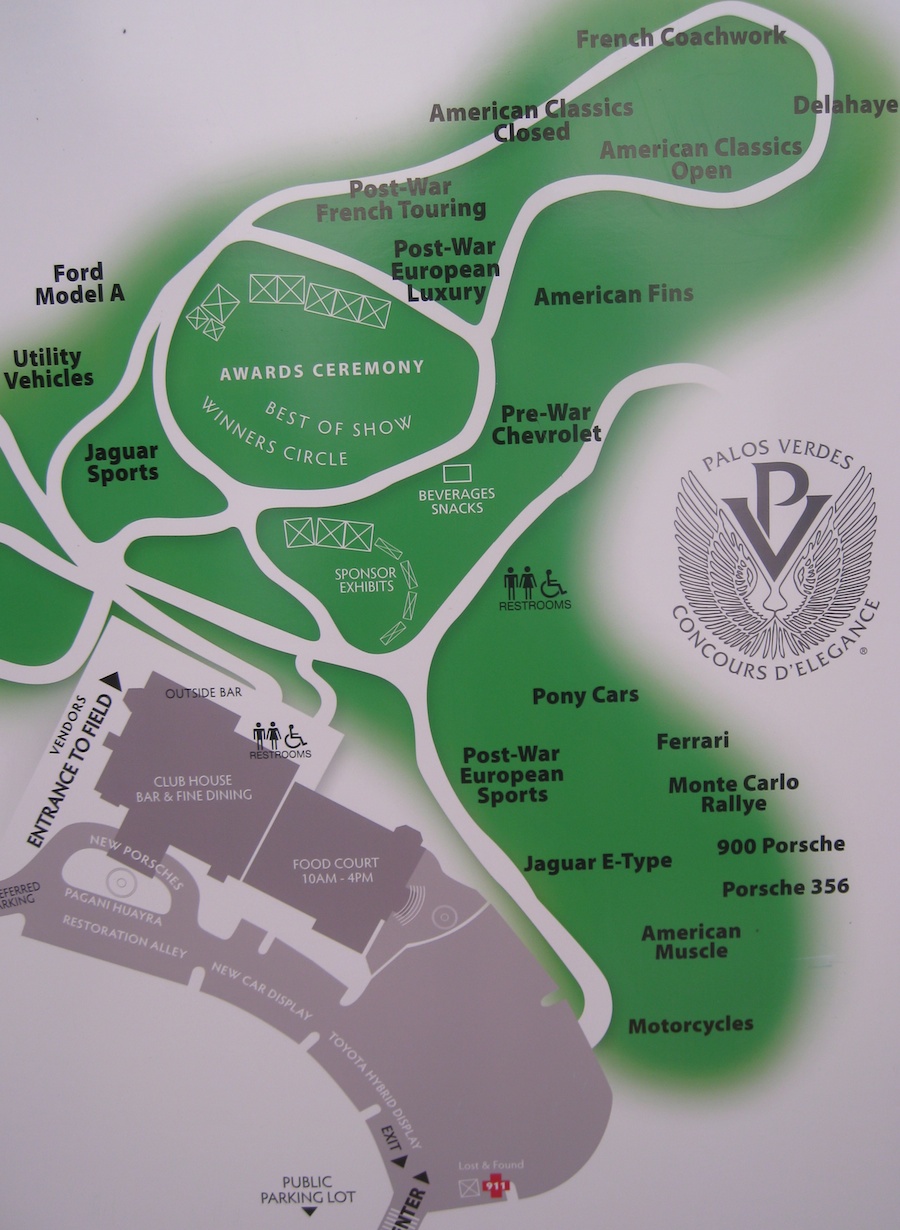
To the top of the map for a pre-lunch exploration


A 1941.... Complete with sunshades
Did You Know? - The Chevrolet Deluxe was introduced late in the 1941 model year as a 4-door sedan. In 1942 a fastback 2-door "aerosedan" became an option. Production was indefinitely delayed in 1942 due to WWII, after 110,000 had been made total, though several thousand Chevrolet coupes and sedans were produced during the war years for military staff use. In late 1945, civilian production resumed. The original series was produced through 1948. A redesigned Deluxe with reduced body contour and integrated rear fenders was offered for the 1949 and 1950 years.
In the 1941/42 model years, the 216cid inline 6 "Blue Flame" engine was the only one offered. It produced 85 horsepower at 3300 rpm. In 1947 output was bumped up to 90 horsepower. A Deluxe of this vintage could easily exceed 80 miles per hour without overdrive. The transmission was a manual synchromesh 3 speed, with vacuum assisted shift, in which the "three-on-the-tree" shifter was able to be moved between gears by the slightest pressure on the lever.
Third gear was direct, meaning the input and output are equal speeds. Overdrive was a rare option. Connection to the third member rear-end was via an enclosed "torque tube" driveshaft. The brakes where hydraulic with all-wheel drums. The master cylinder was located beneath the driver. Shock absorbers were of the lever type. The windshield through 1948 was of a split, flat-glass type. The wipers were vacuum actuated. Chevrolet offered windshield washers on some years.

1929, the good old days

See the starter???

1934 was a good year

1936

1936 Coup Delivery

Neat idea... Perfect around the farms

1931

Windshield wipers
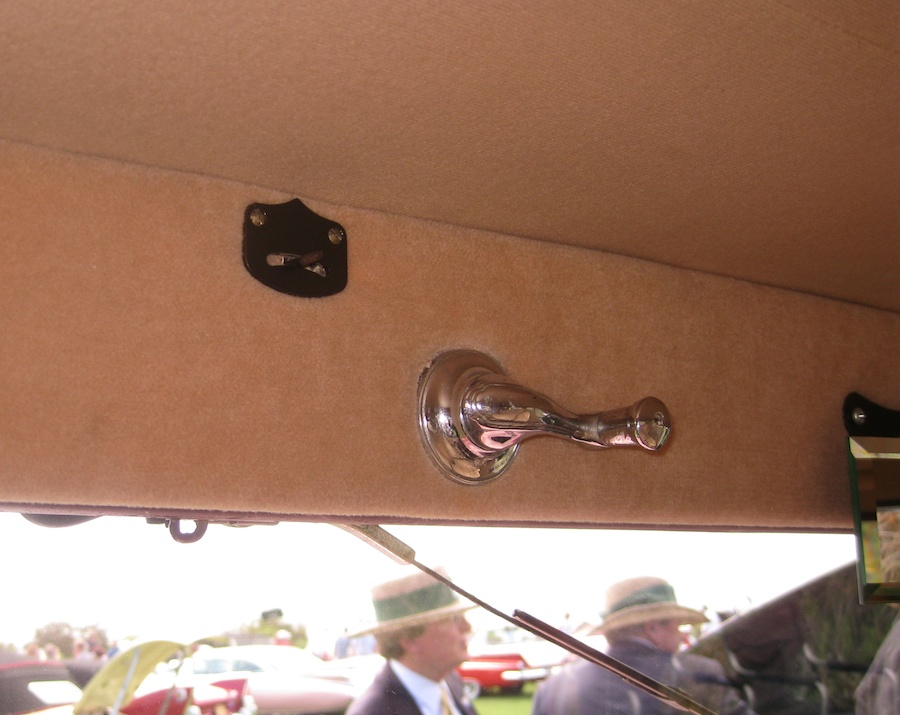
Crank away if you want the water removed

A 1941 Chevy convertible
Standby For Take-Off

Fins bring back memories
Did You Know? - The tailfin era of automobile styling encompassed the 1950s and 1960s, peaking between 1957 and 1960. It was a style that spread worldwide, as car designers picked up styling trends from the US automobile industry where it was the golden epoch of American autodesign.
General Motors design chief Harley Earl is generally credited for the automobile tailfin, introducing small fins on the 1948 Cadillac . Harley credited the look of World War II fighter aircraft for his inspiration, particularly the twin-tailed P-38 Lightning . As jet-powered aircraft, rockets, and space flight entered into public recognition, the automotive tailfin assemblies (including tail lights) were designed to resemble more and more the tailfin and engine sections of contemporary jet fighters and space rockets.
Plymouth claimed that the Tailfins were not Fins, but "stabilizers" to place the "center of pressure" as far to the rear as possible and thus "reduce by 20% the needs for steering correction in a cross wind".
Some sub-models of the 1937 Cadillac Fleetwood , which predates the P-38, also contained hints of tailfins via projecting tail-light "paddles", although it is unclear if this influenced later fin designs. The 1941 Cadillac Series 63 4-Door Sedan also had a form of jutting tail-lights, although milder than the 1937 Fleetwood. Even though the 1948 model was the first conscious effort at fins, the earlier partial occurrences may have made the concept more acceptable to consumers and designers. ( World War II produced a gap of Cadillac model production between the early 40s and late 40s as factories turned to military goods production, interrupting the development of the fin concept.) The Cadillac 1948 fin styling proved popular and its use spread to other models in the General Motors family of brands. Soon it was adopted by other manufacturers; Chrysler 's Virgil Exner in particular took the tailfin idea on board. As confidence grew in the styling trend, the fins grew larger and bolder.
The most extreme tailfins appeared in the late 1950s. The fins on the 1959 Cadillac Eldorado were the largest and most outrageous ever fitted on a production car. Those fins were too much for many customers, however, and the tailfins shrank after that point. Within a couple of years, tailfins had become much less prominent, and by the mid 1960s, they were gone on many models. Vestigial tailfins remained on American cars into the 1980s, with the sides of the quarter panels often being raised above the trunk lid and the corner sharp-edged, or at least raised.

The 1959 Chevy

The classic '57 chevy

Plymouth





1957 Desoto....
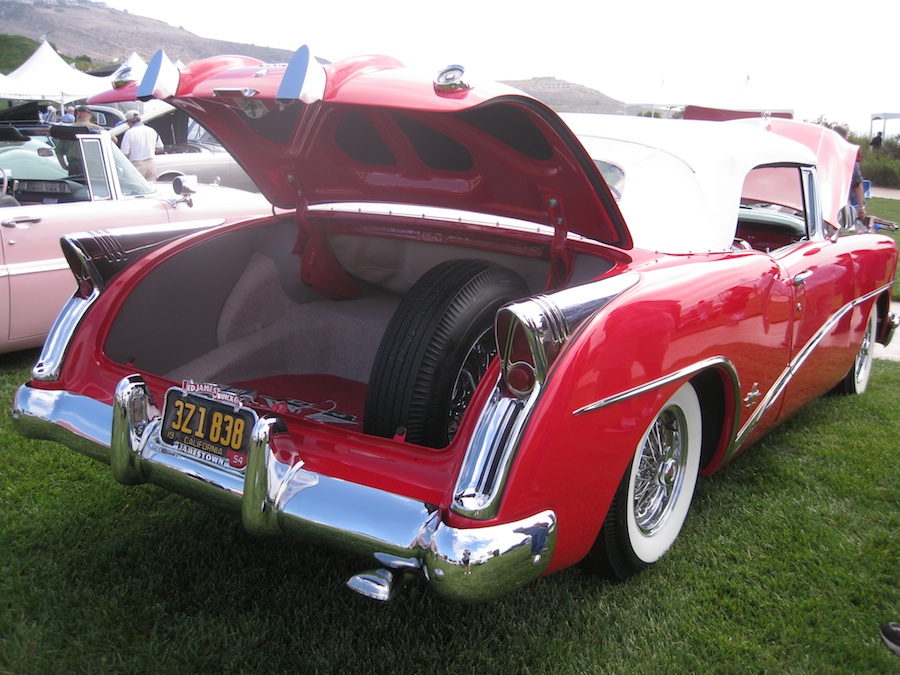
1954 Skylark















American Open Classics


1932 Chrysler



1930 Packard










1932 Alburn


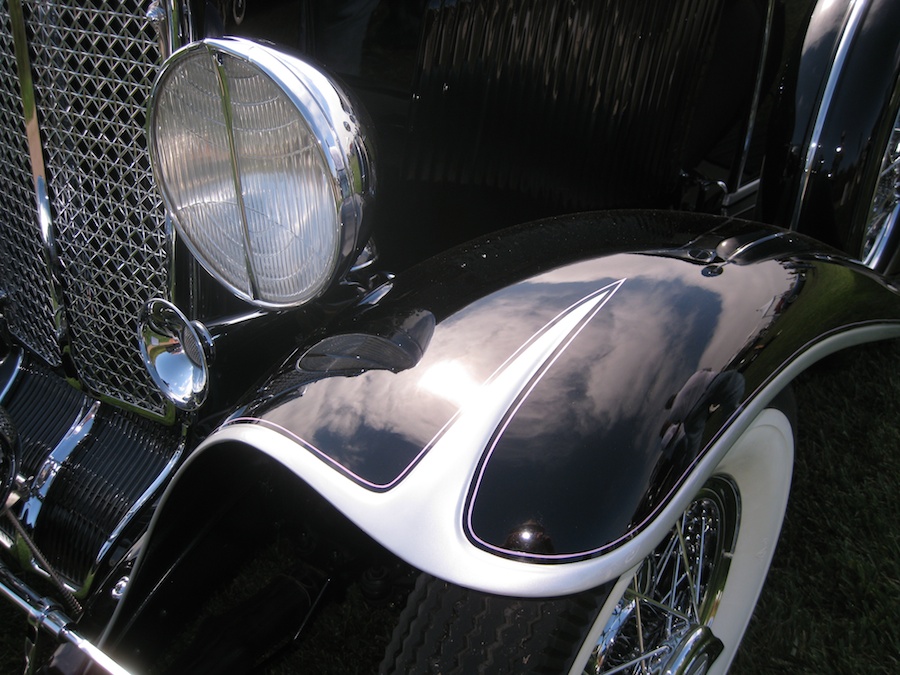
Checkout the original pinstripping....

1933 Marmon
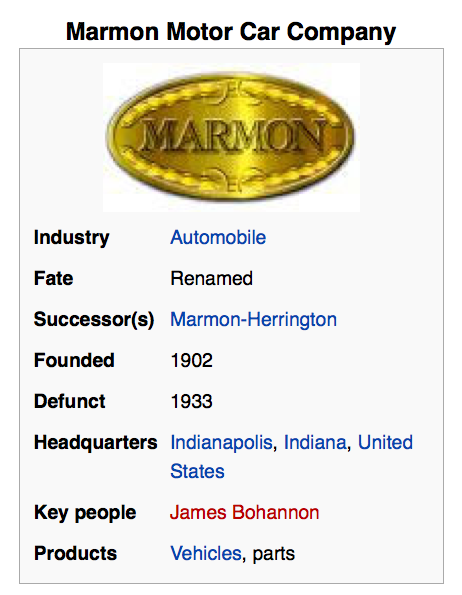
Did You Know? - Marmon Motor Car Company was an American automobile manufacturer founded by Howard Marmon and owned by Nordyke Marmon & Company of Indianapolis, Indiana, USA. It was established in 1902 and was merged and renamed in 1933. They produced cars under the Marmon brand. It was succeeded by Marmon-Herrington and later the Marmon Motor Company of Denton, Texas. The name currently survives through the Marmon Group of Chicago, Illinois.




1937 Cord
Did You Know? - Cord was the brand name of an American automobile company from Connersville, Indiana, manufactured by the Auburn Automobile Company from 1929 through 1932 and again in 1936 and 1937. The Cord Corporation was founded and run by E. L. Cord as a holding company for his many transportation interests, including Auburn. Cord was noted for its innovative technology and streamlined designs. Cord had a philosophy to build truly different, innovative cars, believing they would also sell well and turn a profit.

V-16 under that hood


Richard Steiner (one of our dancing friends) was jusdging this category


The LaSalle 1931
Did You Know? - The LaSalle was an automobile product of General Motors Corporation and sold as a companion marque of Cadillac from 1927 to 1940. The two were linked by similarly themed names, both being named for French explorers — Antoine Laumet de La Mothe, sieur de Cadillac and René-Robert Cavelier, Sieur de La Salle, respectively


1938 Dusenberg

Did You Know? - Duesenberg Automobile & Motors Company, Inc. (sometimes referred to as "Duesy") designed, engineered, manufactured, and distributed luxury automobiles and automobile engines. Founded in Des Moines, Iowa, United States by brothers August Duesenberg and Frederick Duesenberg, the company's principal place of operations moved to Auburn, Indiana. Duesenberg was active in various forms from 1913 to 1937.
























What a beautiful sight